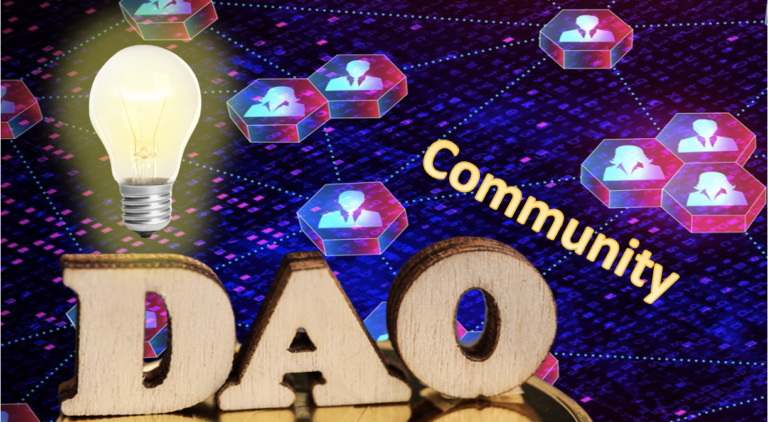“Turning and Turning in the widening gyre. The falcon cannot hear the falconer. Things falls apart; the centre cannot hold; mere anarchy is loosed upon the world.” -William Butler Yeats
These above lines from Yeat’s poem The Second Coming, serve as a backdrop to help us understand the spell of centralization. If we’re the falcons, who are our falconers?
One of the Crypto buzzwords we hear every day is decentralization. Like an overplayed song, the overuse and redundancy of speech can numb us to the meaning behind a word. Decentralization: A word extoled by cypherpunks and crypto enthusiasts alike, is becoming as interesting as drying paint, or as annoying as a broken record. Yet its significance is still greater than ever, as the dominance of government backed central bank authority and surveillance capitalism is still a surging force. And if left unhinged these forces will greatly impact our futures. Here, I’m going to re-examine and hopefully reinvigorate for you the importance of decentralization and what it means for our sovereignty.
Centralization is such a broad reference point that is opposite—decentralization— automatically becomes just as broad. And it begs the question as to who these centralizers are—these falconers, these central authorities. Hence, centralization must be understood philosophically more than anything else. Essentially it refers to power. Power exerted over people in particular—we are thus the falcons led and controlled by centralization.
And as falcons, we go about our day without much to time to think about the biggest influences impacting what’s around us. Our children, our careers, our schooling—they all leave us with little time for leisure and reflection upon the nature of the central power structures enveloping us. When things seem comfortable, there is no reason to pull out our mental chisels and question authority. It is only when things go awry, or it seems that there is an impending earthquake about to crack the foundations of our comfort—that our intuitive alarms bells sound and we question everything.
For many of us, the 2008 financial crisis was alarm bell number one; and the 2020 pandemic—alarm bell number two.
The exertion of power by central authority comes in many forms; it is often under the guise of the greater good. Often, it is by the way of the “greater good” narrative that the bearers of central power are able to expand its influence or control. Let’s take the recent ransomware attacks on the Colonial oil pipeline and JBS foods, whereby criminals took control of computer systems and demanded a monetary ransom to put them back online. The daily cost of these distribution systems going offline far outweighed the price of the ransom. And it is not just the cost in dollars that I am referring to—it’s the cost to all the people dependent upon these supply chains as well. Such ransomware attacks are successful because their consequences are extreme—they are terrorist attacks where the mediators are forced to negotiate based on the extreme havoc the attack wreaks as it continues.
Such attackers often demand a payment in cryptocurrency, as it is perceived to aid the attacker in remaining anonymous. But this isn’t always the case. In reference to Bitcoin (BTC), for example, any ransomware sent could be tracked from one Bitcoin address to another. Therefore, such transaction tracking actually gives law enforcement a set of tools to catch criminals. In this way Bitcoin is superior to cash, which leaves no record of transaction.
Regardless of these facts, central powers use the example of ransomware attacks as reasons for why cryptocurrencies must be regulated. They use these ransomware attacks as means to attack cryptocurrency itself.
Note: The systems that the cybercriminals were able to exploit were obviously centralized as well. Rather than bash cryptocurrency, centralized powers can actually help prevent ransomware attacks through the adoption of decentralized blockchains, or at the very least maximize their security by deploying systems on private blockchain.
Back to our point, whether or not some cybercriminals have used cryptocurrency for ransomware… when cash demands are requested as payment for ransom, do government officials come out and try to ban cash?
No, that would seem absurd… and since Crypto has advantages over cash in being able to digitally track the payout—cracking down on Crypto should seem just as absurd.
In effect, ransomware attacks have now become part of the narrative for further Crypto regulation and a reason for governments to surveil cryptocurrency through regulation. Central authorities find a need to further discredit Crypto, because crypto itself is a challenge to fiat currency. This is much to the chagrin of cypherpunks and crypto enthusiasts who see cryptocurrency as a means to protect our rights to privacy and property. Here, the falconer (the supporters of a reigning fiat backed currency) maintains power over the falcon through fear. The falconer shouts out: “To protect all ye falcons from the ransom of a supply line by cybercriminals, I declare further regulation on the cryptocurrency that they are requesting as payment.”
If the murder weapon was hammer, does the hammer go on trial? Why is Crypto on trial here?
This example could easily devolve into the age-old debate on gun laws and regulation. But there is one key difference—with guns we are dealing with a blatant physical consequence, while with cryptocurrency we are dealing with the abstraction of money. And because money is backed by faith, be it faith in the government or faith in the mathematical code supporting cryptocurrency—it is the regulation of faith by the centralized power of government through public denouncement of cryptocurrency. Essentially, this is a fight to control our mindset when it comes to the type of money that we will trust the most in the future.
Let’s not misconstrue that centralization is the government itself or corporations themselves. We all need roads and bridges, and we all need some form of protection to maintain peace, stability, and especially our democracy. What’s important here is balance. And if by way of cryptographic blockchain technology, we can achieve a greater balance and democratization of power, then it is in the governments interest to help further advance cryptocurrencies.
Shelves are filled with books on the dissection of centralized power; how power is retained; and how power is exerted over our lives. In relation to cryptocurrency, the monetary power of central banks and corporations through centralized third parties are the imbalance and inequality decentralized cryptocurrency was created to combat. When we think about the revolutionary qualities of cryptocurrency, we mostly think about centralized power of government monetary surveillance it aims to dismantle. Yet there is another form of centralized power cryptocurrencies seeks to disrupt, and that is the control of information.
Facebook (FB), Amazon (AMZN), Google (GOOG), Microsoft (MSFT) and many other corporate conglomerates by way of the internet (and cloud data storage) have amassed and centralized our personal information to the extent that we no longer own our digital selves. Their power and influence go far beyond merely monitoring our clicks, keystrokes, and voice data to establish a digital psychological profile—a profile that allows these tech giants to target advertise us and achieve the desired result of a purchase.
Please take that in. It goes far beyond these Corporations’ ability to digital psychologic profile us, predict our behavior and earn a profit off that knowledge.
The real digital meat that these Corporations hold is our psychological profile itself—the translation of data from the countless hours we spend online into information that they can exploit. The possession of that information is much more valuable than any ability to target sell to us.
Based on the vast information they have collected on us, would it be in the best interest for a Corporation like Google to only sell their products to us, especially when they can earn much more by selling to others who we are?
Our behavioral patterns, our interests, and the triggers to aid others in exploiting our consumers habits is by orders of magnitude a greater value to Google than any product they can sell to us. In fact, the browsers we use, Twitter, our social media platform, YouTube, etc., are free for a reason. As the old adage goes… if it’s free then you are the product; yes, we are the products of surveillance capitalism and it is our tendencies, habits, interests, abilities, everything about us that makes us who we are, that is being bought and sold by these centralized digital cattle herders. And all the companies out there smart enough to know how this works, they purchase such information for further exploitation. The centralized information collected by the aforementioned Tech giants are at the heart this usurpation of power.
In her book Surveillance Capitalism, Shoshana Zuboff paints this dystopian reality—this widening gyre—that we are already contained within and spiraling deeper into every time we use these services. And because there is no other platform to speak from (myself included) … we are all currently all locked into the use of these services.
Within the confines of surveillance capitalism, Zuboff describes our lives as:
“Unilaterally rendered data, expropriated, and repurposed in new forms of social control, all of it in the service of others’ interests and in the absence of our awareness or means of combat.”
Enter Crypto and we now have the means to combat these forces. It is not just the central authority of banks backed by governments that Crypto will revolutionize. It is the centralization of information, particularly our information that somehow, we inadvertently tossed over to corporations whom in turn control and exploit us. The most valuable asset to them is our information they collected.
Literally, the information about us is the most valuable asset to them as they are able to sell that information to corporations and people all over the world. They created and owned our digital profile—with AI and supercomputing power of data crunching, they may even know our spending habits better than we do.
Beyond Bitcoin, crypto projects like Qortal (QORT) or Filecoin (FIL) aim to decentralize the power of these Techno giants. Giants who must satisfy their shareholders by generating greater profits. Unfortunately, their best means to rake in profits is to further collect and exploit information on us—hence the downward spiral. But decentralization through crypto is our pathway to sovereignty; it is our best means to reclaiming ourselves from the centralized power mongers eating away at our humanity. To centralized power, the temptation to exploit is as great as the dangling fruits of wealth. But I implore you to look beyond the hype of wealth and see cryptocurrencies not only as a means to acquiring a greater fortune, but to understand that we now have the means to democratically balance power through cryptocurrency—and as for the dried-out broken-record of a word—decentralization—the next time you hear it… let its syllables reverberate in your ears like the drumbeat of war… it’s a call to action to examine and foster the best Crypto projects of our future. And escape the widening gyre of centralization.
Disclosure: Long Bitcoin, Qortal and Filecoin







1 thought on “Decentralization: Crypto and the Widening Gyre”
Very informative!